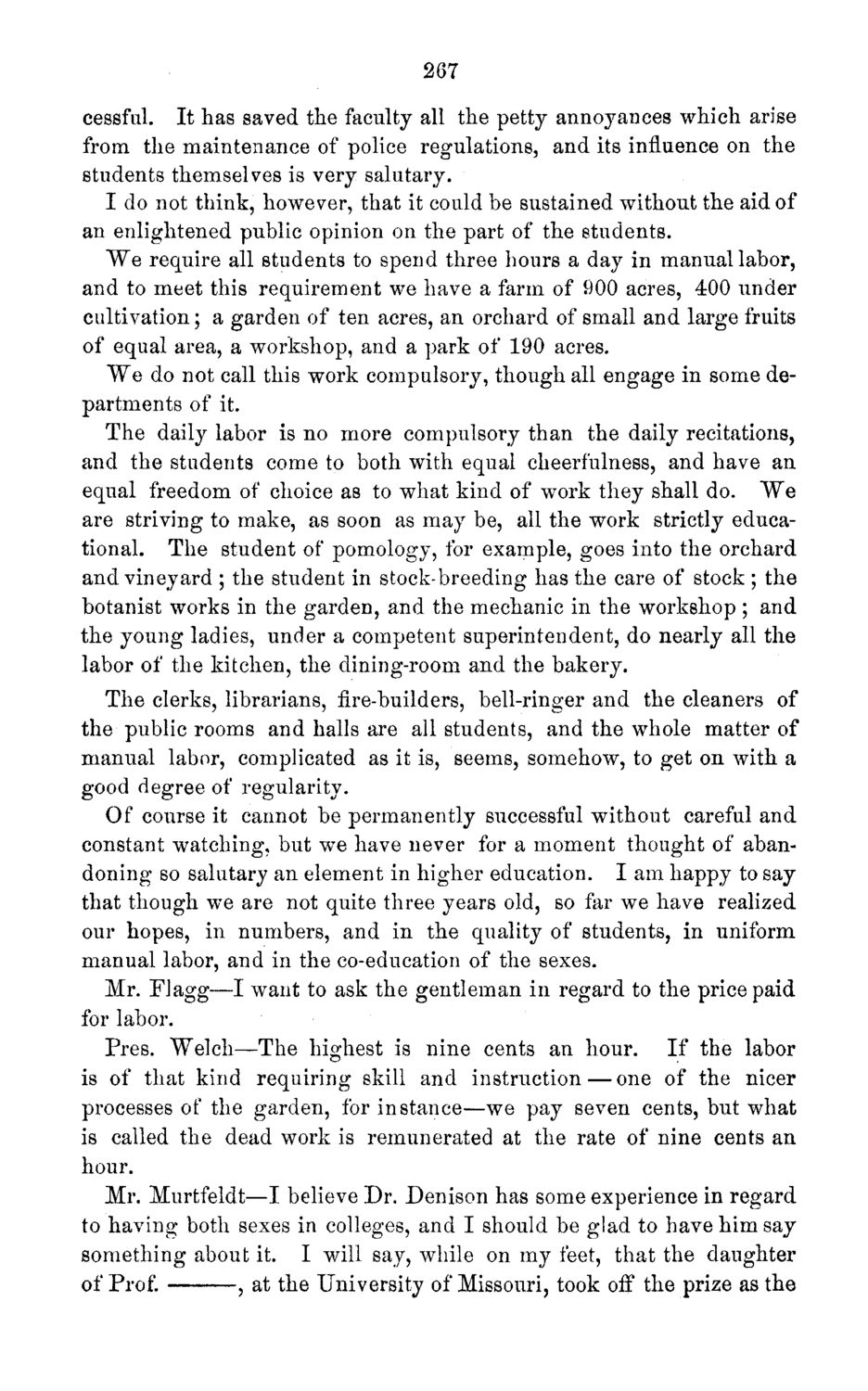| |
| |
Caption: Board of Trustees Minutes - 1871
This is a reduced-resolution page image for fast online browsing.

EXTRACTED TEXT FROM PAGE:
267 cessful. It has saved the faculty all the petty annoyances which arise from the maintenance of police regulations, and its influence on the students themselves is very salutary. I do not think, however, that it could be sustained without the aid of an enlightened public opinion on the part of the students. We require all students to spend three hours a day in manual labor, and to meet this requirement we have a farm of 900 acres, 400 under cultivation; a garden of ten acres, an orchard of small and large fruits of equal area, a workshop, and a park of 190 acres. We do not call this work compulsory, though all engage in some departments of it. The daily labor is no more compulsory than the daily recitations, and the students come to both with equal cheerfulness, and have an equal freedom of choice as to what kind of work they shall do. We are striving to make, as soon as may be, all the work strictly educational. The student of pomology, for example, goes into the orchard and vineyard ; the student in stock-breeding has the care of stock ; the botanist works in the garden, and the mechanic in the workshop ; and the young ladies, under a competent superintendent, do nearly all the labor of the kitchen, the dining-room and the bakery. The clerks, librarians, fire-builders, bell-ringer and the cleaners of the public rooms and halls are all students, and the whole matter of manual labor, complicated as it is, seems, somehow, to get on with a good degree of regularity. Of course it cannot be permanently successful without careful and constant watching, but we have never for a moment thought of abandoning so salutary an element in higher education. I am happy to say that though we are not quite three years old, so far we have realized our hopes, in numbers, and in the quality of students, in uniform manual labor, and in the co-education of the sexes. Mr. Flagg—I want to ask the gentleman in regard to the price paid for labor. Pres. Welch—The highest is nine cents an hour. If the labor is of that kind requiring skill and instruction — one of the nicer processes of the garden, for instance—we pay seven cents, but what is called the dead work is remunerated at the rate of nine cents an hour. Mr. Murtfeldt—I believe Dr. Denison has some experience in regard to having both sexes in colleges, and I should be glad to have him say something about it. I will say, while on my feet, that the daughter of Prof. , at the University of Missouri, took off the prize as the
| |